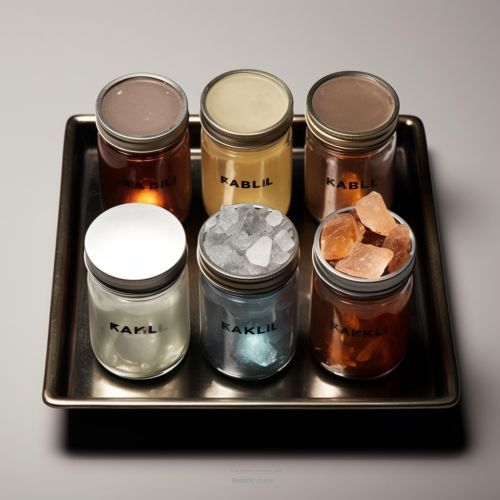Alkali metal
Introduction
Alkali metals are a group of chemical elements from the s-block of the periodic table. They include lithium (Li), sodium (Na), potassium (K), rubidium (Rb), caesium (Cs), and francium (Fr). These metals have a single electron in their outermost electron shell, making them highly reactive. Alkali metals are characterized by their low ionization energies and redox potentials.


Physical Properties
Alkali metals are soft and have low densities, melting and boiling points, as well as heats of sublimation, vaporization, and dissociation. They can easily lose their outermost electron to form cations with charge +1. They all crystallize in the body-centered cubic crystal structure, and have distinctive flame colors because their outer s electron is very easily excited.
Chemical Properties
Alkali metals are highly reactive and are not found in nature in their elemental form. They react vigorously, and often violently, with water to form hydroxides, releasing hydrogen gas. This reaction also generates heat, which can ignite the hydrogen gas. Alkali metals also react with other elements to form ionic salts.
Occurrence and Production
While alkali metals are not found in nature in their elemental form due to their high reactivity, they are found in many minerals. Sodium and potassium are the seventh and eighth most abundant elements in the Earth's crust, respectively. Alkali metals are extracted from their minerals by electrolysis of the molten salts.
Applications
Alkali metals have many applications. Sodium and potassium are essential elements for living organisms and play important roles in biological processes. Sodium vapor lamps are often used for street lighting in cities, potassium is used in fertilizers, and lithium is used in batteries.
Safety and Precautions
Due to their high reactivity, alkali metals can be hazardous. They react violently with water and can cause fires. Therefore, they are usually stored in mineral oil or kerosene. Alkali metals should be handled with great care.
